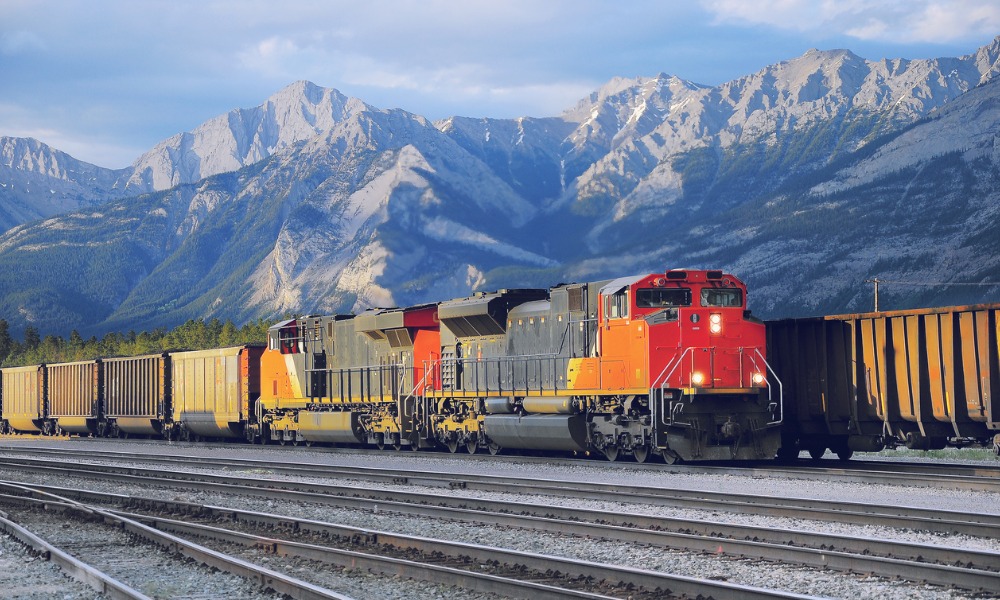Union appeals federal intervention in rail dispute, citing threats to collective bargaining rights

The union representing thousands of railroad workers has appealed the federal government’s decision to end the recent nationwide rail shutdown that disrupted freight and commuter services across Canada, as reported by BNN Bloomberg.
The Teamsters union, in its filings to the Federal Court of Appeal, is challenging Labour Minister Steven MacKinnon’s directive that enforced binding arbitration less than a day after Canadian National Railway Co. and Canadian Pacific Kansas City Ltd. locked out 9,300 workers.
Following MacKinnon’s instructions, the Canada Industrial Relations Board ordered the two major railways to resume operations and directed employees to return to work until the arbitration process could finalize new contracts.
The union is also contesting the decisions made by the tribunal, arguing that the actions taken set a “dangerous precedent” that threatens workers’ constitutional right to collective bargaining.
Paul Boucher, president of the Teamsters Canada Rail Conference, stated that without the ability to strike, unions lose essential leverage to negotiate better wages and safer working conditions for Canadians.
The railway companies, along with some industry groups, have supported the minister’s decision, claiming it alleviated months of uncertainty and mitigated supply chain disruptions.
CN spokesperson Ashley Michnowski mentioned that while the company preferred a negotiated settlement, the union was not seeking a resolution after nine months of talks, instead applying pressure by damaging the Canadian economy.
She emphasized that arbitration is a neutral process designed to break an impasse without favouring either party.
MacKinnon issued the back-to-work directive within 17 hours of the lockouts, alongside a strike by CPKC employees. He justified the decision by pointing to deadlocked negotiations and the potential harm to Canadian businesses, job security, and trade relationships.
Industry groups had raised concerns about the economic impact of a prolonged shutdown, leading CN and CPKC to gradually reduce operations nearly three weeks before the stoppage.
The rail shutdown had significant consequences, halting the movement of various goods, including car parts, crude oil, consumer products, grain, and potash, and causing severe disruptions in supply chains.
Additionally, more than 30,000 commuters in Montreal, Toronto, and Vancouver were unable to use passenger trains on CPKC-owned tracks.
The labour board’s ruling on August 24 requires railways to maintain operations and employees to stay on the job until arbitration concludes. The union’s appeal does not impact current rail services.
The union filed four appeals in a Toronto courthouse, seeking to overturn the minister’s directives and the labour tribunal’s decisions involving CN and CPKC.
The appeals argue that these directives exceeded the minister’s jurisdiction and violated the union’s freedom of association under the Charter of Rights and Freedoms.
The union’s legal challenge is based on a 2015 Supreme Court of Canada decision, which recognized collective bargaining and the right to strike as essential components of freedom of association.
The court had previously ruled against a Saskatchewan government bill that imposed a ban on strikes by essential civil servants, deeming it a violation of Charter rights.
Charles Smith, a political science associate professor at the University of Saskatchewan, believes the Teamsters have a reasonable case in court. He cautions that if the union's appeal fails, it could set a precedent that might allow provincial governments to undermine collective bargaining rights.
Smith questions whether the imposed binding arbitration aligns with the standards established by the Supreme Court.
The Canada Labour Code grants the labour minister broad powers under Section 107, enabling the minister to take necessary actions to “maintain or secure industrial peace,” including ending work stoppages through binding arbitration.
MacKinnon invoked this clause to address the recent rail shutdown. The minister’s office has stated that it will let the court process proceed but declined to comment further.
Canadian Pacific also refrained from commenting, reiterating its belief in collective bargaining while acknowledging the need for decisive action given the economic implications.
Following weeks of tension, the union and railway officials are scheduled to meet next month to discuss the timeline for binding arbitration, marking the first time they will convene since the work stoppage.



